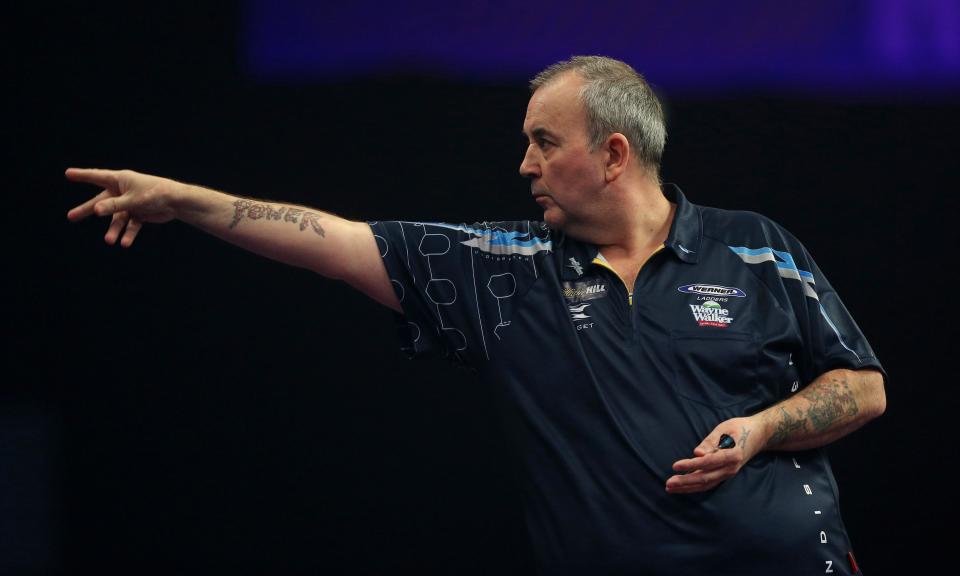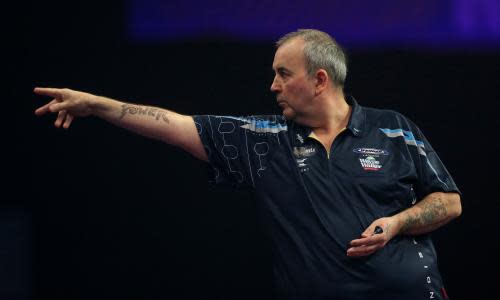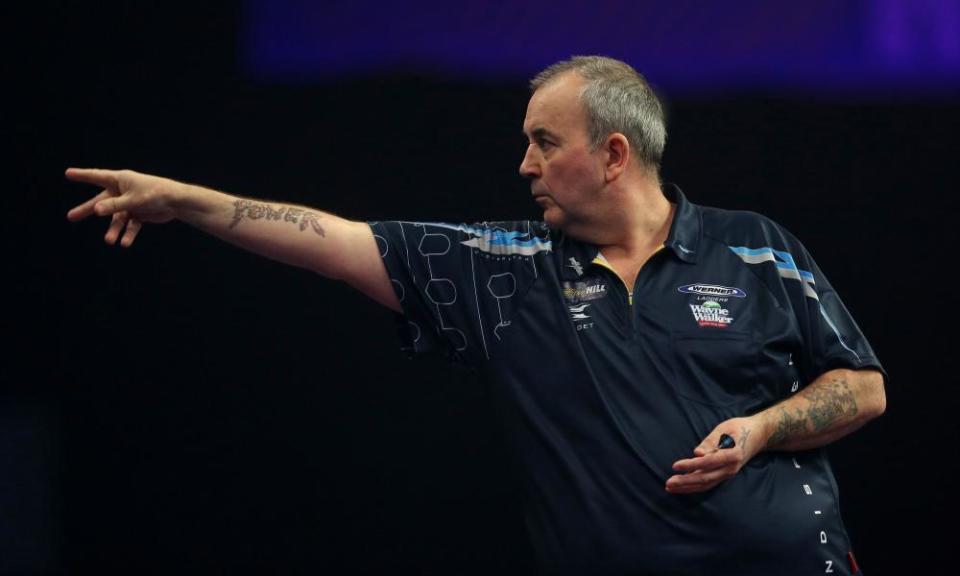Darts: One last fling before Phil Taylor finally turns off the power
Soon there will be no more throat-rattling oneunrenahnnehhteees bellowed in his honour, or match-winning doubles boozily lauded by the loaded. Instead, after this year’s world darts championship, which begins on Thursday, the Power will finally turn out the lights.
For almost three decades Phil Taylor has been as immutable as death and taxes. The first of his 16 world titles came in 1990, when Margaret Thatcher was prime minister and with Alex Ferguson on the brink of getting sacked at Manchester United. It is not inconceivable that the last could come on New Year’s Day, with Taylor now aged 57.
Whatever happens, it is almost unprecedented for anyone to linger so long at the top. Yes, WG Grace played first-class cricket for 44 seasons from 1865 to 1908 and Fred Davis was still potting balls when he was 78. But they played in less turbo-charged eras.
Re-watching Taylor’s 6-1 shellacking of Eric Bristow in that 1990 final serves as a reminder to how much darts has changed. Much of the audience appears teleported in from a working men’s club, with old men in their Sunday best and grannies clutching mascots, and there’s a church-like silence when a player is going for a double. At one point, however, the BBC’s commentator Tony Green gets particularly excited. “There’s the Basingstoke football team there,” he says, proudly. “They took the day off.”
READ MORE: Otamendi, Luiz and other erratic goalscoring defenders
READ MORE: Champions League knockout stage draw
Yet as Taylor, then an unemployed 29-year-old engineer, thuds in the winning dart with those supersized forearms, Green makes a remarkable prophesy. “Bristow the champion in the 80s, Phil Taylor, there, the champion in the 90s. We have a new era in the sport of darts.”
He sure got that right. Such was Taylor’s dominance that he won every PDC world championship from 1995 to 2002 – including a staggering 7-0 thrashing of the 1994 BDO champion John Part in the 2001 final during which he hit a 107.5 average. That said, many of his leading rivals – Bob Anderson, Keith Deller, John Lowe and Bristow – were past their best, which meant he was often a giant among pygmies.
Arguably what Taylor has achieved since his mid-40s is just as impressive. Even in the sedentary sports, something inevitably slips with age: the eyes, the nerves, the tolerance for hours of practising and travel.
Yet despite facing a deeper talent pool, largely through wholesale defections from the BDO, Taylor has won darts’ two biggest prizes – the world championship and world matchplay – 13 times since 2006.
However, Taylor’s life away from the dartboard should prompt a sharp intake of breath. Last year it turned out that two of his daughters were living on benefits, while in 2001 he was found guilty of indecently assaulting two 23-year-old women and fined £2,000.
Many of his fellow players have had an uneasy relationship with him, although it is hard to know how much of that is jealousy or down to Taylor being more prickly than the tips of his 26-gramme titanium nitride darts. Back when Taylor was winning everything, a fellow professional Alan Warriner moaned: “They might as well call it the Phil Darts Corporation. I am fed-up … if he beats me, then I will punch him and knock him out.” More recently the world No1 Michael van Gerwen called Taylor a “nob”.
Even now, Taylor displays a curious craving for respect. Witness his annoyance with one of the sport’s rising stars, Daryl Gurney, after a recent match. “The worst thing he did was he went on stage and poured himself a drink of water and left me out,” explained Taylor. “I thought: ‘You disrespectful little shit, I’ll get you, I’ll get you for that.’”
Yet without Taylor the second golden age of darts would never have happened. After the game’s great schism of 1994 it looked busted; indeed after a rival world championship to the British Darts Organisation’s was set up, Taylor and co played for a first prize of just £16,000. This year the winner will take home £400,000, while the total prize fund stands at £1.8m.
It was Taylor who sustained darts in its lows and reaped the rewards when it become cool again. He has never been the most fashionable of men – witness the red-and-white nylon shirt with a deep v-neck he wore during his first title win, which looked like a bad rip-off of a late 70s Nottingham Forest kit or, indeed, the red-and-gold sequins that could have been plucked from Liberace’s wardrobe – yet somehow he has made darts fashionable.
These days the atmosphere is more like a big Saturday night out, but with an added sprinkling of Premier League footballers, members of One Direction, and minor celebrities looking to get in the tabloids. It’s certainly come a long way from the days when Basingstoke Town turned up to watch.
Of course Taylor is no longer quite the force he was. But he goes into this year’s world championship as the bookies’ fourth favourite, and – helpfully – on the other side of the draw to the brilliant Van Gerwen. One final humdinger between the game’s two greatest players would be a fitting way for the Power to go out.

 Yahoo Sport
Yahoo Sport 








































